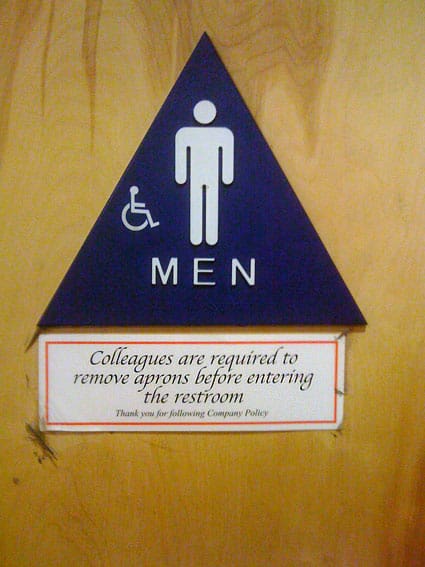Observing Rome, 2010
I’ve posted about 150 photos to Flickr from our recent trip to Rome. Here’s a few favorites:












I’ve posted about 150 photos to Flickr from our recent trip to Rome. Here’s a few favorites:












Our work brings us into intimate contact with people in their own environments, and we often get to see “back stage.” (Sociologist Erving Goffman used a model based on theater to talk about how people manage behavior in their everyday lives, referring to front stage and back stage realms and the differences in impression management that occur in each.)
There’s a moment that regularly occurs during fieldwork visits where the person we’re meeting with takes us into a hitherto shut room, opens a closet door to reveal something private, or simply goes to a new level of honesty and revelation in their discussion with us.
Places too have front stage and back stage elements, though these are often less closely guarded than those of individuals.
Here, front and back stage at a San Mateo ramen shop…


And below, explicit instructions to employees on how to transition between the front and back stage realms at an Alameda supermarket.


Much to the delight of shirtsleeves, elbows, and dogs, our office complex is being repainted. Today the crew painted our doorframe. We noticed that they propped our door open with an old brush. They’ve downcycled this brush specifically into a doorstop, using a saw to cut off most of the handle. Check out how well it lines up with the angles of the entryway, as if it was designed just for that purpose!
Here are Steve’s pictures from a week in Austin for the SXSW conference/festival
See also Cutting Thru Clutter at SXSW
Danger reenacts what has historically been done to dangerous literature, self-immolating when opened.
Curiosity represents the notion that many book-banners feel, that the true danger of literature is that once you've opened a book you have been forever changed and can never go back. Emulating this notion, Curiosity can never be closed. Once opened, it is locked in an open position forever.
(via Waxy)
In seeking support from and representing every sector of the book industry, BISG affirms its belief in the interdependence of all industry segments. BISG understands that success in business is often easier to achieve through joint effort and that common problems are best solved together.
We work on ideas that will influence our future vehicles. We want to share our ideas, inventions and pre-production vehicle designs. We want to build the right cars and trucks for your future. We want your opinion.
It’s been a busy year and as we head into the home stretch, looking forward to 2010 (supposedly the year we make contact), we wanted to take a look back at the past 12 months and call out some of the highlights.
Previously: Our 2008 review
I’ve posted about 250 photos to Flickr from our recent trip to Istanbul. Here’s a few favorites:



















I’ve posted about 150 photos fo Flickr from our recent trip to London. Here’s a few favorites












See also: